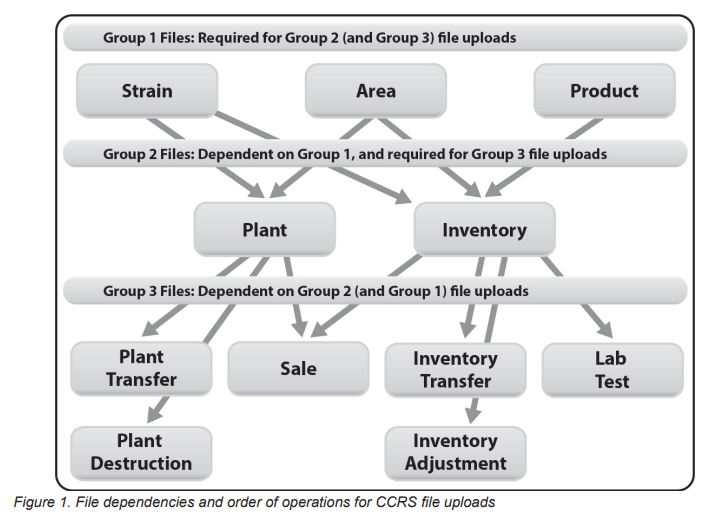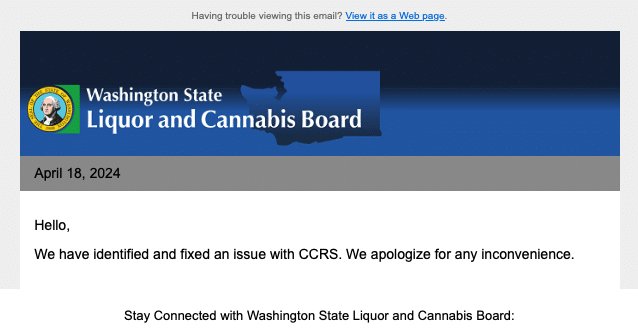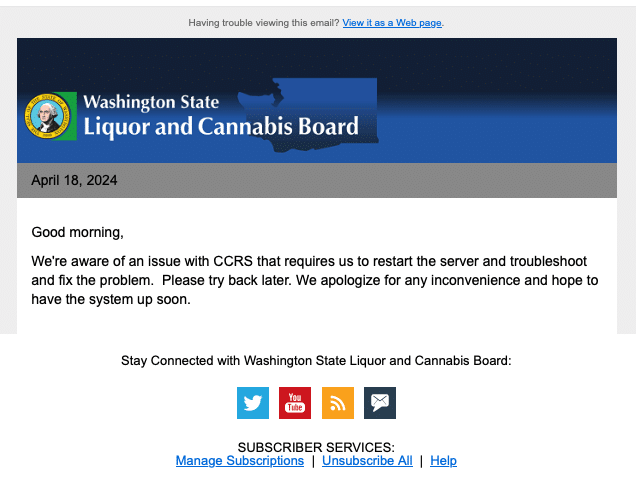Washington's CCRS Issues and Challenges
- Bamboo Team
In 2012, Washington State took a significant step towards cannabis legalization when Initiative 502 was passed in December 2011, allowing for the legal regulation of recreational cannabis. The first recreational dispensaries opened their doors to the public in July 2014, marking a new era for the state.
Over the past decade, Washington has experienced a series of changes in its compliance and regulatory landscape, as various bodies and regulations have been introduced to oversee the seed-to-sale tracking of cannabis. The state initially partnered with BioTrack in 2013 before transitioning to MJ Freeway’s Leaf Data Systems in 2017. However, the sudden sunsetting of Leaf and the introduction of the Cannabis Central Reporting System (CCRS) in 2020 presented significant challenges for the industry.
Unlike most recreational and medical states that opt for established systems like Metrc or BioTrack, Washington chose to develop its own in-house solution through the Washington State Liquor and Cannabis Board (WSLCB). The CCRS was intended to address the specific needs of Washington’s cannabis industry, serving stakeholders and government officials while providing a more stable and reliable traceability solution. However, the implementation process has not been without its difficulties.

The absence of an API system forced service providers and integrators in the state to collaborate independently, leading to the formation of the Washington Cannabis Integrators Alliance (WCIA). This alliance aimed to facilitate the testing, transfer, and sale of products by building a system on top of CCRS. Despite these efforts, not all companies have participated in the program, and even those that have may not adhere strictly to the agreed-upon Washington state schema, creating compliance issues.
Furthermore, the lack of an API and the reliance on WSLCB’s own servers have led to performance issues, with CCRS often experiencing slowdowns during peak hours. This has resulted in the frequent use of Contingency Manifests (CMs) as a workaround for the system’s inability to handle the volume of CSV files required for reporting.
At Bamboo, we recognize the challenges faced by Washington’s cannabis businesses and have dedicated our efforts to ensuring full compliance and user satisfaction. Our developers work tirelessly to report every necessary file to CCRS every 15 minutes, surpassing the industry standard of daily or weekly reporting. By taking on the complexities of CCRS, Bamboo allows its users to focus on their core business operations while maintaining compliance with state regulations.


Recent Posts
- Simplifying Accounting for Cannabis, CBD, and Hemp Companies
- Effortlessly generate Compliance, Order, and Product Labels with Bamboo!
- Bamboo and BioTrack NYS OCM Seed-to-Sale
- New York Seed to Sale, BioTrack NYS OCM – Stay Compliant with Bamboo
- BioTrack Goes Live in New York: Bamboo Unveils the Ultimate Compliance and Sales Solution